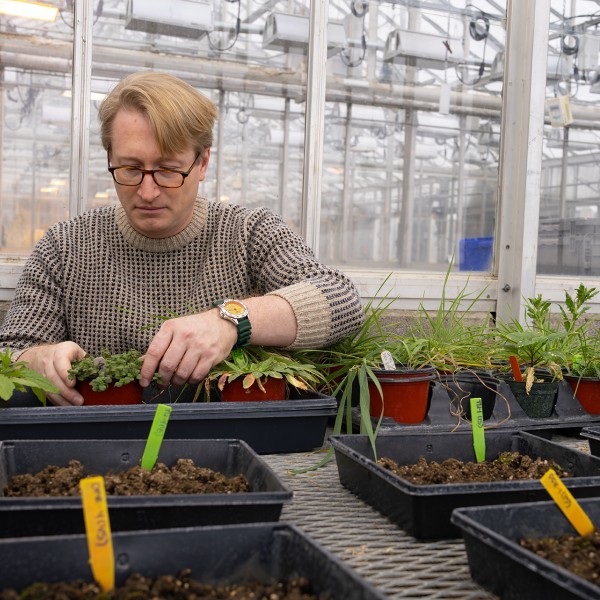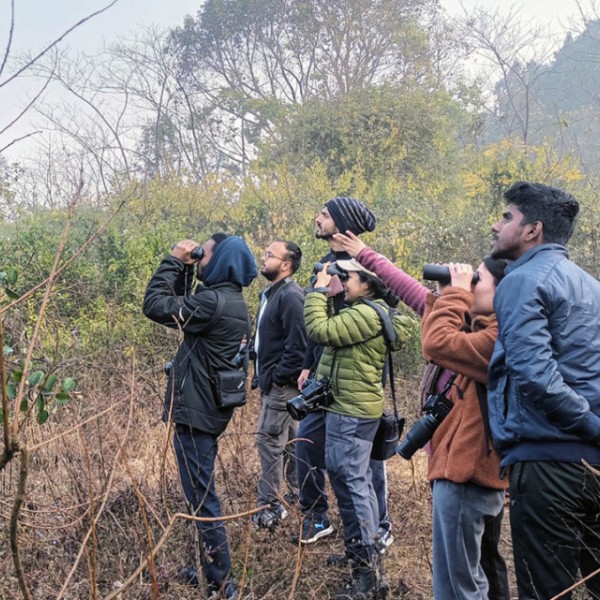Academic focus: Molecular microbiology, bacteriology, biochemistry and genetics
Research summary: My lab studies how bacteria translate the genetic code into protein. We use genetic screens to identify new factors that interact with the ribosome and prevent it from stalling. We also use biochemistry, genetics and ribosome profiling to understand the mechanisms by which these factors rescue stalled ribosome, and how loss of these factors affects physiology. This knowledge will then be used to identify new antibiotics.
What do you like to do when you’re not working?
I enjoy hiking and backpacking, reading, writing and being with my family.
What are your current inclusion, outreach and/or extension projects?
I started my education at a community college, and so I am very excited about working with transfer students. During my postdoc I taught nights and weekends for two years at the Borough of Manhattan Community College, which is a Hispanic Serving Institution in New York City. This experience was very meaningful to me because I could measure a positive impact in real-time as my students succeeded and transferred into their desired programs. I still get emails from them all the time!
In the fall, I will be teaching peer-mentoring for transfer students at Cornell, and I’m really excited to continue working with diverse students! Furthermore, I plan to host community college students for research projects in the lab before they transfer so that they don’t fall behind their peers who started at Cornell as freshmen.
What are three adjectives people might use to describe you?
Persistent, curious, caring
What brought you to Cornell CALS?
The science and the culture! Cornell CALS is really special because of how it combines high-quality microbiology research with equity, outreach and inclusion. The emphasis on agricultural research is also really important to me since I grew up on a dairy farm. Being in CALS is like being home!
What do you think is important for people to understand about your field?
Basic research into fundamental processes (like protein synthesis) is incredibly important. The advances we have had in medicine wouldn’t be possible without it.
Why did you feel inspired to pursue a career in this field?
I didn’t always know that I wanted to be a scientist. I grew up milking cows on our dairy farm, and had no idea that science was an accessible career path until I started doing research my junior year of undergraduate. I worked in an inorganic chemistry lab, and my mentor, Veronika Szalai, said that you can actually get paid to do research. I was amazed!
Around this same time, I took a course in bacterial genetics with Dan Wolf. It was an entire course on the discovery of the Lac operon — a group of genes that allow bacteria to use lactose as an energy source — and I became totally hooked on bacterial genetics. My chemistry background and newfound interest in bacterial gene expression made me fall hard for the bacterial ribosome! Ribosomes are amazing! They are ancient catalytic machines, and possibly even precede the development of cells! And yet, bacteria have evolved diverse mechanisms to further perfect their activity. What is more exciting than that!?
What’s the most surprising thing you’ve discovered about Cornell so far?
I am amazed at the lengths Cornell has gone to in order to keep its students healthy in the pandemic. We are really lucky!
If you had unlimited grant funding, what major problem in your field would you want to solve?
If I had unlimited funding, I would clone every gene of every soil bacterium (both culturable and unculturable) and determine which of the products of those millions of genes can be used as new antibiotics. The end of the antibiotic-era is at hand, and so this would really helpful for society!
I would also buy thousands of hours of electron microscope time to monitor protein synthesis across the entire cell, and determine the rescue-mechanism of all the factors that interact with the ribosome over time and under many different conditions. Finally, I would use the unlimited funds to pay the undergraduate and graduate students doing this work a really high salary, which they deserve!





